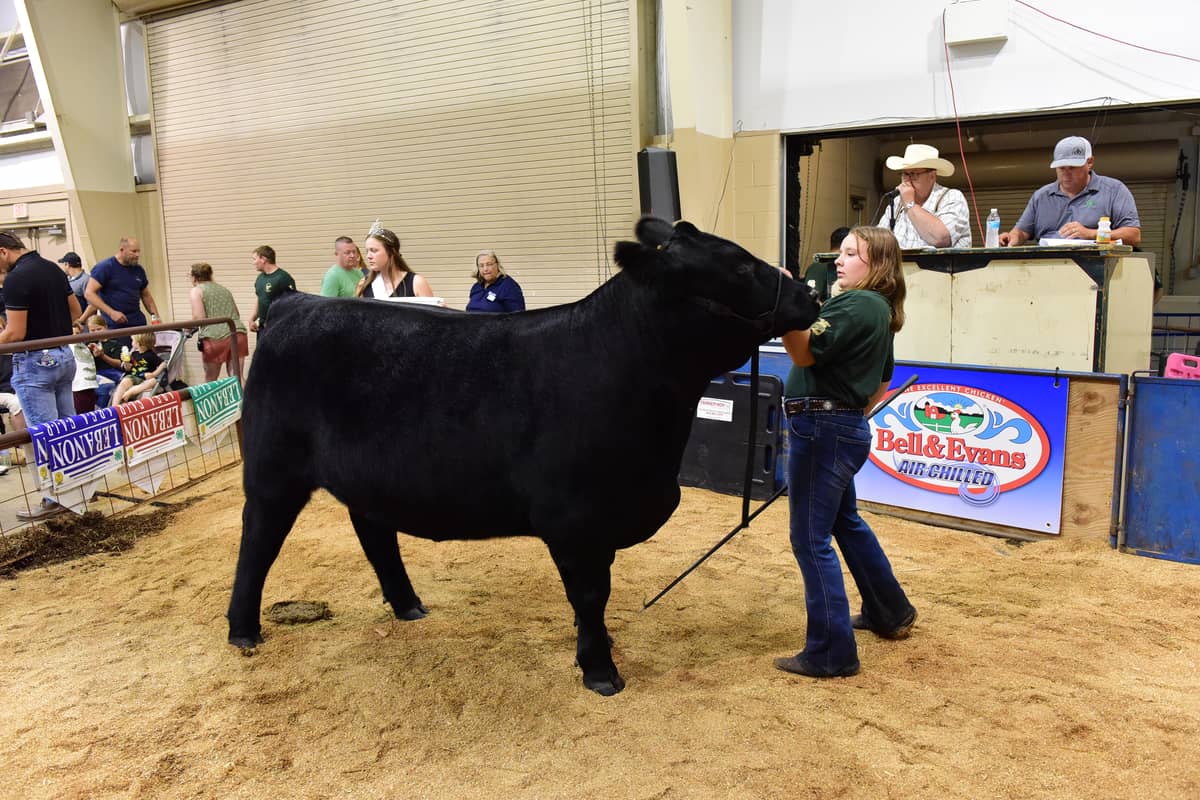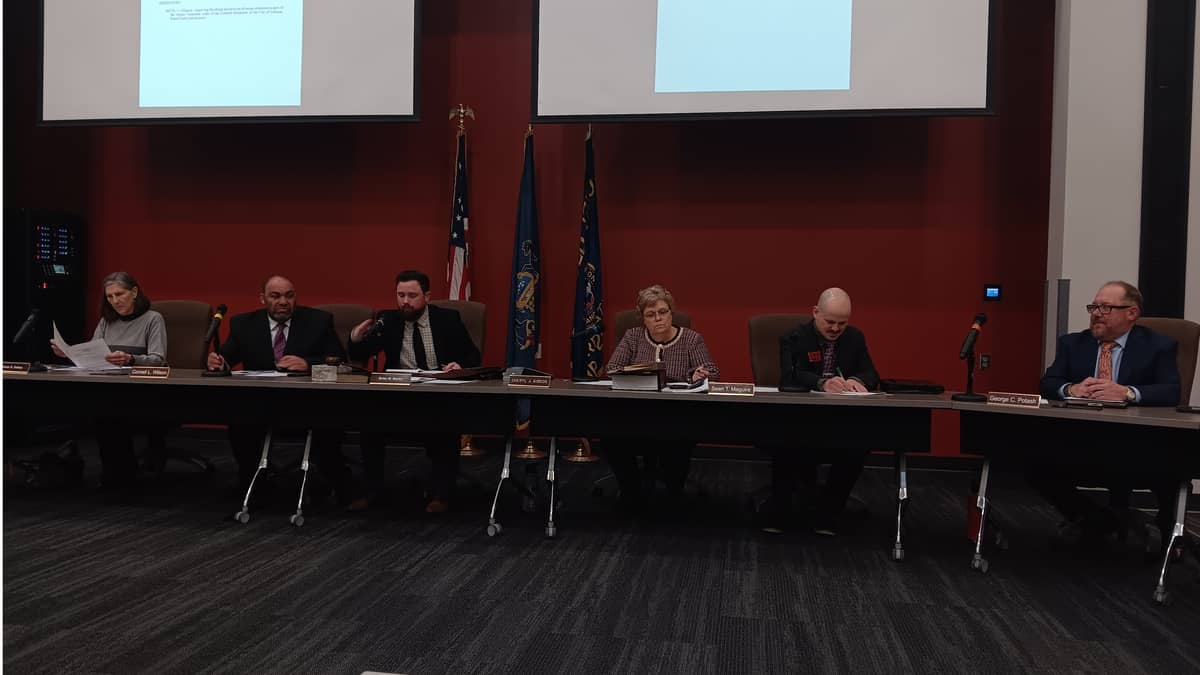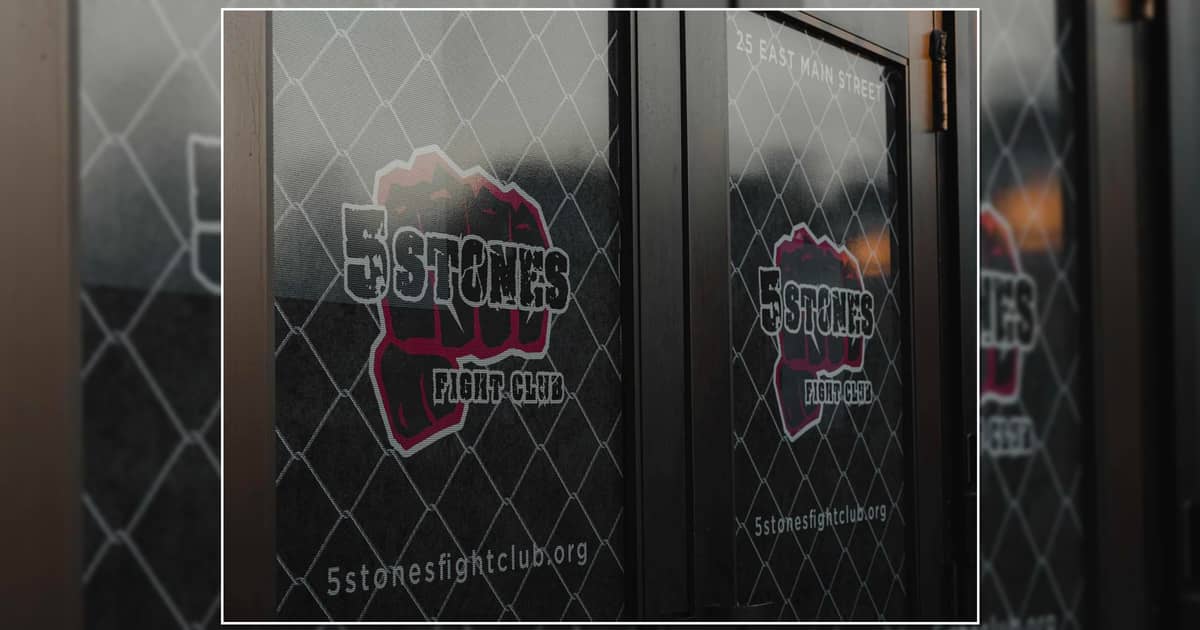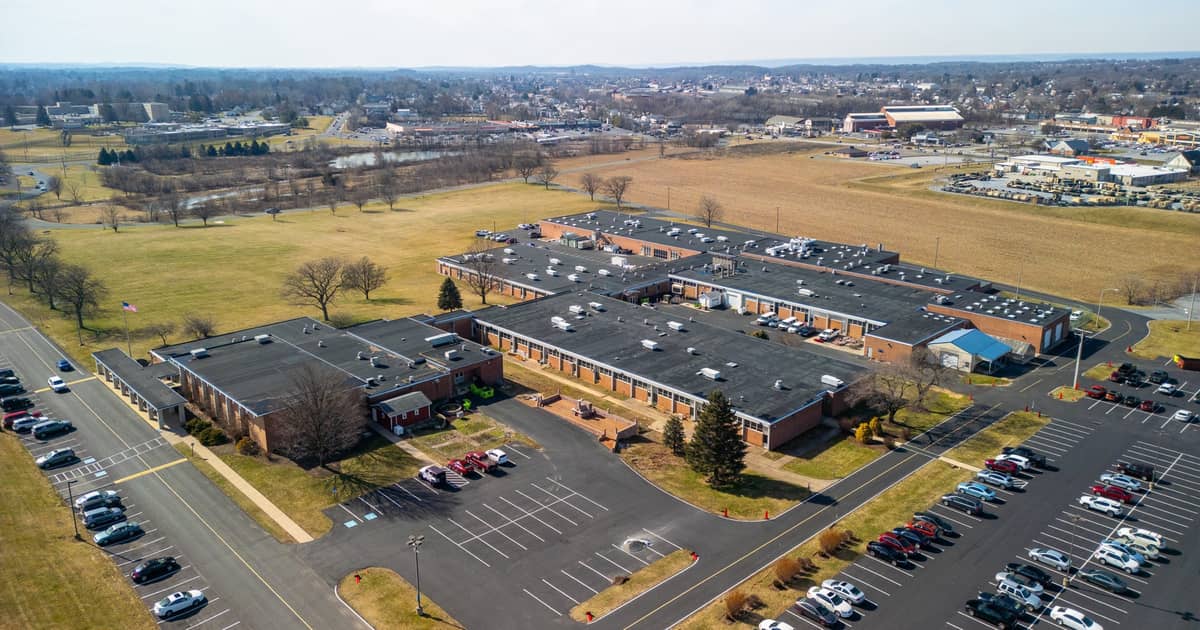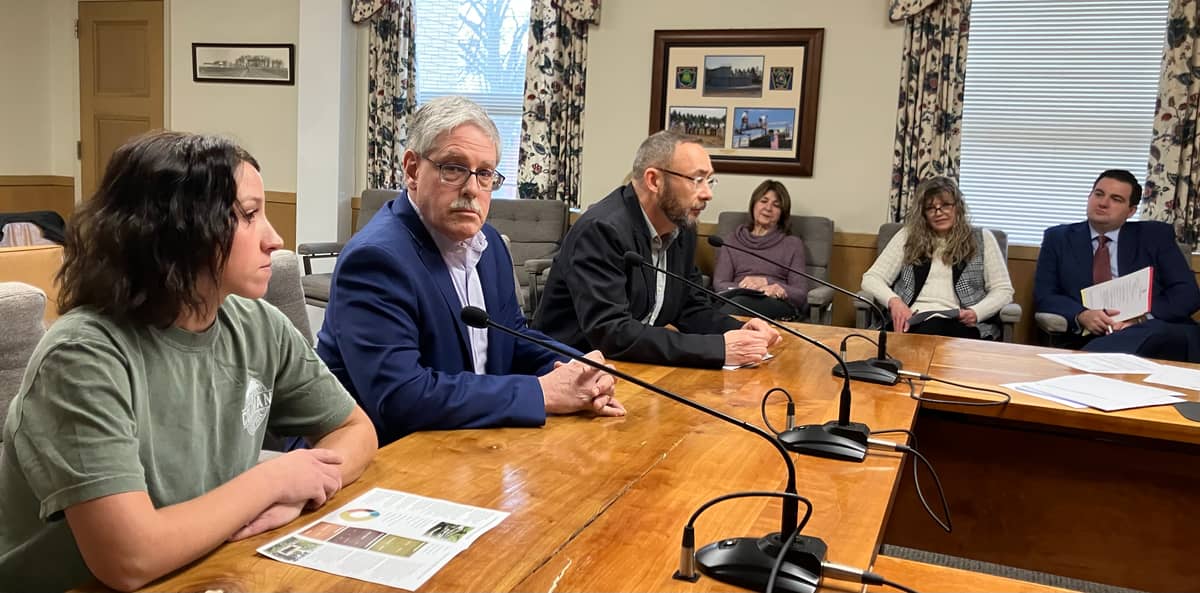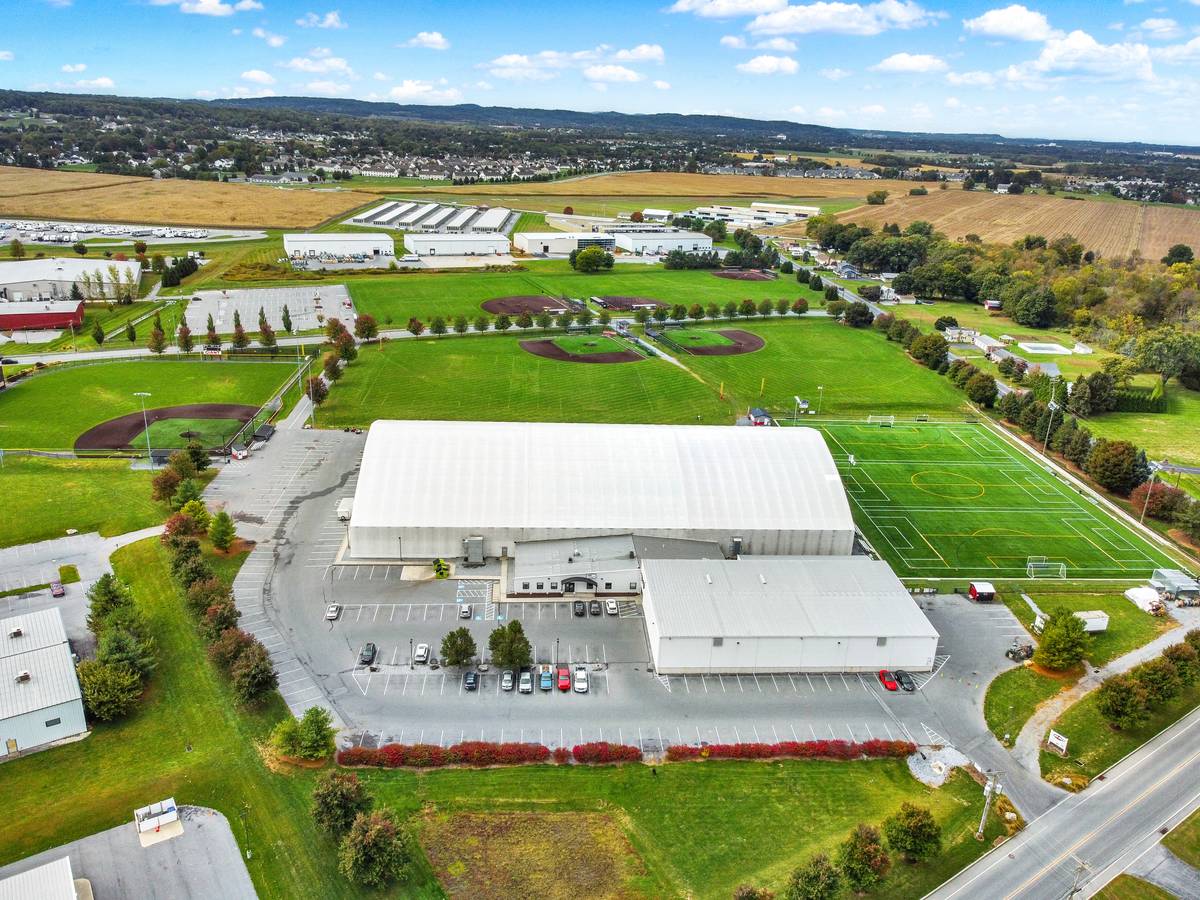When James Voight joined the Lebanon County 4-H livestock club as a young boy, he did so unwillingly.
“I didn’t have a choice growing up because my brother and sister were in 4-H when they were younger, and so I was put into it when I was like 8 or 9,” said Voight. “It became a part of my life – even before I was conscious, almost.”
Fast forward a decade, and Voight now sees the value of being an active member.
“After awhile I learned the importance of the 4-H program and I see how it affects me in many different ways,” said Voight, the 18-year-old son of Del and Lory Voight of Fredericksburg. “Besides the showing aspect, you realize how much hard work you’ve put in all through the summer just to see your project go at the end of the sale. It is a really fulfilling thing, but along with that, it helps you with your career in a bunch of different ways.”
The “sale” that Voight referred to is the annual livestock 4-H sales at the Lebanon Area Fair.
The Small Animal Sale will be held on Wednesday evening and two days later the Livestock Sale will take center stage on Friday night, according to Debbie Tice, 4-H program assistant with the Penn State Extension Lebanon. Tice is the adult leader who runs the 4-H Livestock Club in Lebanon County.
“The Small Animal Sale, held on Wednesday night, was originally just a Meat Pen Rabbit sale,” wrote Tice in an email to LebTown. “It now includes goats, dairy beef and turkeys as each of those species have been added.”
Tice also wrote that the 2022 livestock sale saw 10 steers, 200 hogs, and 40 lambs sold to market.
In 2023, 120 4-H youths who are members of the club will show 10 steers, 230 hogs and 50 lambs and then sell them later in the week to buyers. Tice said youths in the local livestock club also hail from Berks, Dauphin, Lancaster, and Schuylkill counties, adding that all have a connection to Lebanon County.

“I should have said animals tentatively for sale because they have to make weight,” said Tice in a telephone interview. “Steers have to be at least 1,000 pounds, 80 pounds for lambs and hogs have to weigh between 220 to 290 pounds. There are stricter regulations for hog packer companies and that’s why there is a weight range.”
Both sales are the culmination of months and months of hard work as the youths raise the animals and learn at the club meetings animal husbandry best practices.
“Steers are a year-long project, so if they are looking to show a steer next year, they are already looking for the next one if they don’t have one already,” said Tice. “March or April is when the youths get their project lambs and January is when it starts for the hogs. We used to say that hogs were easy to raise, but today, it’s different. You have to walk them, make sure they are eating and check their health. The same is true with the lambs (and other animals). There’s really a lot that goes into it.”
Voight, who plans to show two pigs and a steer at this year’s fair, concurred that they are very long projects – especially when raising beef cattle. His 2018 project was named a reserve champion market steer and he showed and sold the grand champion market steer in 2019.
“They are between 500 and 600 pounds when we get them and you are looking to get them to between 1,300- to 1,400-pound weight,” said Voight. “We feed a mixed ration of feed along with supplements.”
There is also the day-to-day maintenance along with compiling a project journal, which Tice says is “the bane of all club members” but necessary to teach 4-Hers the valuable life lesson of record keeping.
“You work with them every day,” said Voight. “You are washing them, combing out their hair and, as showtime approaches, you have to sharpen your showing skills and fine tune your clipping skills to demonstrate those skills to the show judges. Finally, you get to show them.”
Voight said sale day used to be emotional for him.
“When I was younger I used to ball my eyes out when I had to leave the steer on the trailer since I had spent so much time with my animals,” said Voight. “But over the years I’ve talked to my parents and they have taught me that the animal has a place and a purpose in life. And that purpose is that he will feed someone.”
As he’s matured, Voight said he’s become more reflective and has a different perspective of the livestock sale as a teen.
“You are standing in the arena and there are all of these people who are there to support you,” said Voight. “Before the sale we send out buyer letters about two to three weeks prior. Everyone being there does show that all of your hard work can pay off and it shows the benefit of the 4-H program, not just for your own projects but all of the people (in 4-H).”
Tice maintains what she calls a buyer’s list of all the businesses and individuals who traditionally purchase the animals at a price that’s usually higher than market value.
With hundreds of buyers and relatives who also purchase animals on behalf of their children or grandchildren, the annual sales speak volumes about the community’s support of the youth who are members of the county’s 4-H program.
“It says that our program and our sale, specifically, has huge support in the county and beyond because some of those businesses are not based in Lebanon County,” said Tice. “There’s huge support in the ag community for the kids. It really is a huge (buyer’s) list and it amazes me how well it is attended and how much support is given to our kids.”
Tice credits auctioneer Harry Bachman of Annville for possessing a talent that draws out the best in the buyers.
“Harry Bachman, our auctioneer, has a technique that works, that draws them into bidding higher on these animal,” said Tice. “But that’s just Harry — he’s an exceptional auctioneer. It’s not only his profession, he’s really good at what he does.”
Bachman, who has been the only primary auctioneer since the program was started at least 35 years ago, said hogs were the only animals sold when the event was first introduced to the fair. He noted that he’s added an assistance as these programs have grown over the years.
He also told LebTown the secret to his auctioning success begins with being excited himself. He said he also makes sure the buyers are comfortable and he also “works the room,” so to speak, in the days leading up to the two auctions.
“You have to know who your buyers are,” said Bachman. “All during fair week we are talking to people and getting to know what might happen on the day of sale.”
Bachman is also credited with bringing a level of professionalism to the sales. He purchases shirts for all of the kids so that there is uniformity with all participants who are in the sales ring when their animals are purchased.
“We provide the kids dark green shirts because we want them to look nice when they are in the ring,” said Bachman. “They have to have theirs on in order to sell. Buyers who attend other fairs have told me our sales are professional because the youths look professional.”

Tice said there’s something special about the two livestock sale events.
There is an electricity in the air as both sales are like a family reunion, of sorts, between the many buyers who have traditionally supported the sale as well as former participants who, now as adults, reaquaint themselves with their friends from days past.
“It is something that seems to be in the blood or something that people just want to pass along to their families,” said Tice. “When my kids were in 4-H with their friends and whether they have their own kids who show or not, they still come back to the sale. And you see it everywhere – many big families and generations of families are there. It’s really hard to describe but there is a feeling in the room that night.”
It’s safe to say that “feeling” is a testament to the power of the county’s 4-H program and how it prepares youths for the challenges they will face when they become adults.
“A mother once said to me, ‘Where else do you get these skills?’” said Tice, who admitted she was “getting goosebumps talking about the positive impact of 4-H.” “We like to say we are teaching life skills with these projects because these projects are really about raising the kids. They (the sales) are more than just a financial thing. The kids are learning a work ethic, they are learning life skills. One employer told me she will hire someone immediately if she sees that person is involved in 4-H.”
The 68th annual Lebanon Area Fair runs from July 22 to 29 at the Lebanon Valley Exposition Center and Fairgrounds at 80 Rocherty Road.
Questions about this story? Suggestions for a future LebTown article? Reach our newsroom using this contact form and we’ll do our best to get back to you.

Keep local news strong.
Cancel anytime.
Monthly Subscription
🌟 Annual Subscription
- Still no paywall!
- Fewer ads
- Exclusive events and emails
- All monthly benefits
- Most popular option
- Make a bigger impact
Already a member? Log in here to hide these messages
Strong communities need someone keeping an eye on local institutions. LebTown holds leaders accountable, reports on decisions affecting your taxes and schools, and ensures transparency at every level. Support this work with a monthly or annual membership, or make a one-time contribution. Cancel anytime.

